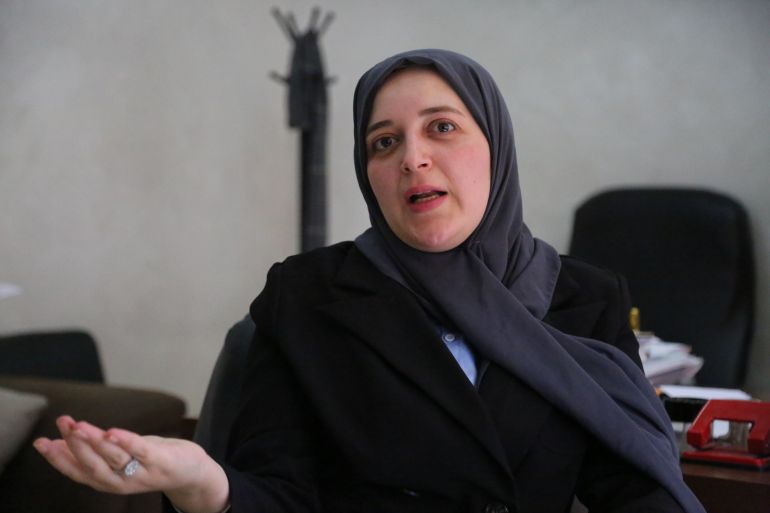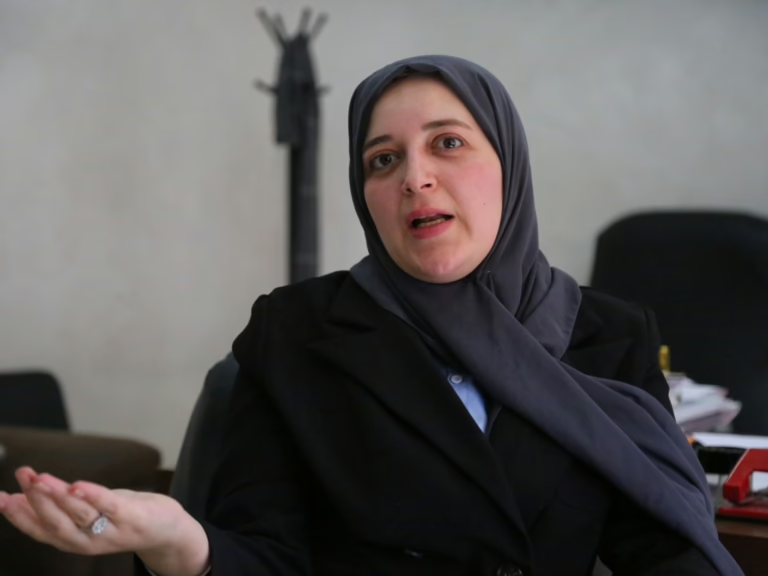Hebron, occupied West Bank – As news spread that Canada, followed by the United Kingdom, Australia, Portugal, and France, officially acknowledged Palestinian statehood, reactions among Palestinians ranged from elation to apprehension, fearing that Israel might respond with increased aggression.
Currently, over 150 nations have extended recognition to the State of Palestine.
Al Jazeera engaged with three Palestinians residing in and around Hebron in the occupied West Bank to gather their perspectives on these recent international developments.
Adel Shadid, Dura
Adel Shadid, a 59-year-old researcher focused on Israel and Zionism, shared his insights from the hills overlooking Dura, located just southwest of Hebron.
He described Britain’s recognition of Palestine as a “partial historical rectification,” referencing the Balfour Declaration issued a century ago, which paved the way for the Nakba-the mass displacement of Palestinians during Israel’s founding.
Shadid views these recognitions as a direct challenge to Israel’s longstanding narrative that denies Palestinian identity, further isolating Israel politically, economically, and morally amid global condemnation of its actions in Gaza and ongoing land seizures.
“The shift in stance by over ten countries, including influential European powers with permanent seats on the United Nations Security Council like France and Britain, is a significant blow to Israel. These nations were instrumental in the Zionist project’s origins, so their recognition despite Israeli opposition is a clear rebuke,” he explained.
He believes this development signals not only international support for Palestinian statehood but also a waning Western endorsement of Israel, which has long portrayed itself as a bastion of Western values in the Middle East.
Nevertheless, Shadid cautioned that Israel has actively worked to dismantle the prospects of Palestinian sovereignty for years.
“Recognition alone is insufficient without control over land and territory. That’s why Israel has intensified land confiscations and illegal settlement expansions,” he noted, also highlighting efforts to weaken the Palestinian Authority.
While the immediate impact of these recognitions may not be visible to Palestinians due to ongoing Israeli oppression, Shadid remains hopeful: “Power has its limits, and Israel’s current course will not endure indefinitely.”

Raed al-Saeed, Hebron
Raed al-Saeed, 50, who sells coffee in Hebron’s central market, has a unique window into the community’s diverse reactions.
He expressed appreciation for Palestinian Authority President Mahmoud Abbas, crediting his diplomatic efforts with encouraging more countries to acknowledge Palestine, particularly with Jerusalem as its capital.
Al-Saeed emphasized that the most pivotal milestone would be recognition from the United States, which Palestinians eagerly await.
Having daily conversations with a wide range of people, he noted a mix of hope and anxiety among locals-while some embrace the recognitions as progress, others fear that Israel might retaliate harshly, worsening their already difficult circumstances.

Maram Nassar, Hebron
Maram Nassar, 31, an expert in constitutional and international law, views the recent wave of recognitions as the culmination of a prolonged process, influenced by the dire humanitarian crisis in Gaza.
She explained that politically, the addition of these countries to the roster of recognizers bolsters Palestine’s standing globally, enhancing its leverage in negotiations and potentially compelling Israel to comply with long-ignored UN and Security Council mandates.
On the diplomatic front, Nassar anticipates that Palestine will be able to establish more embassies and broaden its international relations.
Economically, she foresees an expansion of boycotts against Israeli goods, which could restrict trade and open avenues for direct financial aid to Palestinians, especially as Israel continues to withhold tax revenues from the Palestinian Authority.
Despite these positives, Nassar remains cautious, warning that pressure from the US and Israel might lead some countries to retract their recognition, potentially discouraging others from following suit.
She singled out Britain’s recognition as particularly significant, as it diminishes the occupation’s legitimacy and strengthens the foundation for Palestinian statehood.
While the growing international acknowledgment of Palestine could mark a historic turning point, Nassar stressed that it might also provoke intensified Israeli measures aimed at sabotaging the establishment of a viable Palestinian state.

















